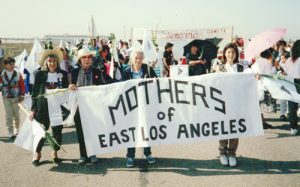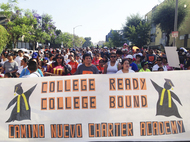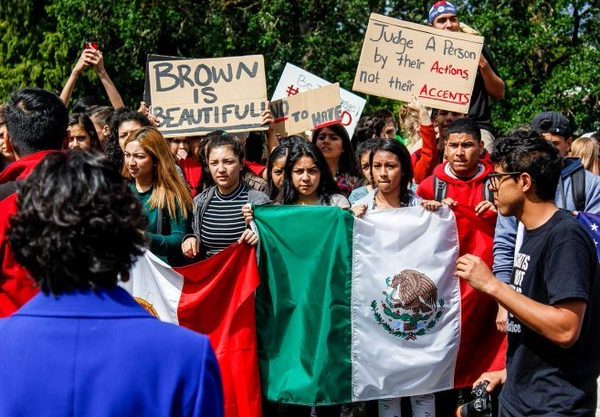
In Mary Pardo’s ‘Mother’s of East Los Angeles‘ article, she explains how this Mexican American women’s grassroots community activism came to be. It began with Juana Gutiérrez explaining that her involvement in her Chicano community began with the Parents club going door to door to ask their neighbors to join the effort to find out who was selling drugs to their youth at the local park. Gutiérrez, like the rest of her community, accepted the governments orders to move to a different area because a large highway was being built in the middle of East Los Angeles that brought heavy air pollution as a result of the cars emissions, and that’s when she promised herself that she would never allow something like this to happen again. She, along with 700 residents, combated the governments idea to create a prison in their community, instead of redirecting those funds to the public schools to improve their children’s education. Finally, a coalition of 400 Mexican American mothers was created to challenge the governments plan to create a energy producing waste incinerator that would further pollute their East Los Angeles community. These Latina mothers recruited the help of Latino business owners and Latino husbands, even if they weren’t the face of the movement, to affect social change for their people.
Camino Nuevo Charter Academy (CNCA)

In Mark R. Warren’s A New Form of Urban Education Reform, Camino Nuevo Charter Academy is presented as an joint effort of community organizers and individuals sponsoring schools that are community oriented as an alternative education to a system that Latino parents felt was failing them. CNCA operates in Central Los Angeles near McArthur Park, where the community consists of a majority of Latino immigrant, because in order to address the problem of Latino students being bused away from their communities to overcrowded schools. What began with a townhouse ballroom for pre-school grew to three elementary, three middle and two high schools in the area. Camino Nuevo, which means “A New Road,” offered students smaller classroom sizes, longer school days and an extended school year to better prepare them to be successful in college. The organization serves a predominantly poor latino communities so they needed to break cultural and language barriers with the administration teachers, parents and students for them to work toward the same goal, “College Ready, College Bound” students. The CNCA schools work closely with parents to address their needs and that of their children within the academic setting and beyond that in the Latino communities.
